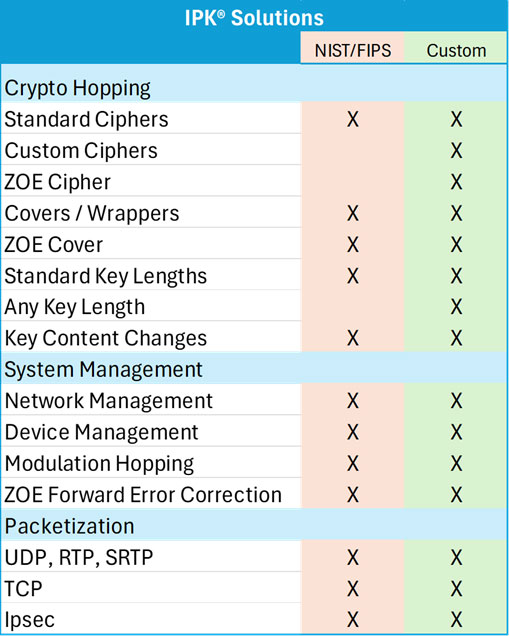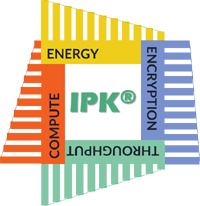More Security with IPK®
In a World of Bad Actors you need IPK® Security
In our world there are always “bad actors” be they our rivals, enemies or competitors. As our lives become more digital and data, the “new oil” is the foundation for competitive and political advantage, the stakes have risen in protecting our digital assets, our critical data from the prying eyes of others. The booming rates of cyber-crime is evidence that we are needing capabilities to combat increasingly sophisticated and ruthless foe looking to crack your codes. The first codes or ciphers were created millennia ago, to ensure that secret messages could be safely transported across a battlefield or from city to city or village-to-village.
Currently, there are a number common encryption approaches used when you are browsing the web or ordering via your Uber-Eats App or using your Microsoft Office 365 or Google Sheets. We have SSL & TLS that are in use when you see https:// in your address bar. You may have seen this when you are setting up an email account, where TLS/SSL is stipulated as a connection protocol. There is UDP (User Datagram Protocol) & TCP (Transmission Control Protocol) which are used in various situations like streaming and file sending. And there are whatever encryption ciphers that your favorite applications or your workplace build into their software, to secure the transactions, your privacy and your data throughput your interactions with them.
More on McEliece “code-based” Post Quantum Encryption
In the IPK® paradigm, we utilize a variety of encryption approaches – our main one being a derivation of Classic McEliece. Pioneered by Robert McEliece in 1978, this approach is inserted into the Forward Error Correction coding process. When it was initially developed, there wasn’t the available processing environment for the McEliece approach to be fully verified or proven – until more recently.
The McEliece approach falls within a Post-Quantum Cryptographic (PQC) category called “code-based” – and is one of the IPK® security approaches within our innovative protocol. Classic McEliece has many strong features - the security reductions are tight, the system is very fast, as both encryption and decryption procedures have a low complexity, and as a result, it supports the highest levels of data communications throughput.
The Post Quantum Cryptography Study Group sponsored by the European Commission has recommended the McEliece public key encryption system as a candidate for long term protection against attacks by quantum computers.
In the IPK® paradigm, you get to choose from many system variables (SV’s), cryptographic variables (CV’s) and IPK® unique variables (IUV’s) within the encryption protocol, and we believe this provides a secure “encryption” bridge to the PQC environment. Being able to achieve that feat, while consuming only a single CPU cycle and within the FEC process is exciting given the efficiencies and economies of the IPK® approach.

This table summarizes the variables that are available within each deployment and down to the Block or Packet level.
What is “Post-Quantum”?
Post-Quantum Cryptography (PQC) is cryptography that is believed to withstand the capabilities of Quantum Computers, which are believe to be almost beyond comprehension compared to today’s computer technology.
What are the current NIST-approved Ciphers called?
NIST has approved a number of free ciphers for use and in some cases, there may be industry standards for specific ciphers to be used is defined circumstances. Get familiar with cipher names like: ChaCha20-poly, AES128-GCM, AES256-GCM, Seed-Ecb, Aria-256-Ecb et al. As these may be used within your favorite Phone App or on your company or home network.

